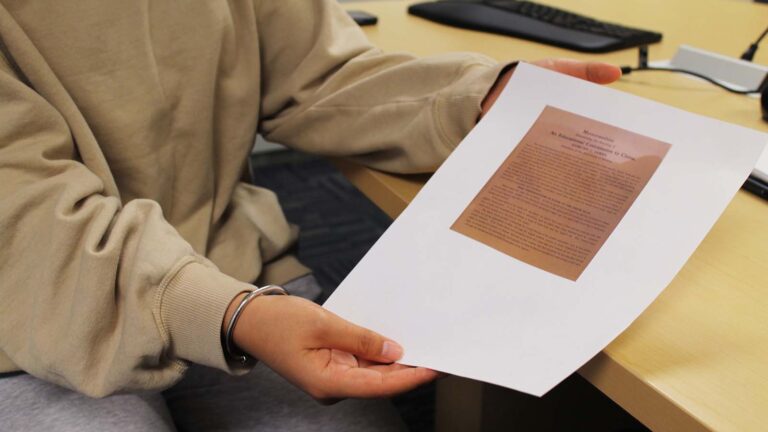URBANA — The Republican-led House Select Committee on the Chinese Communist Party sent a letter in March to the University of Illinois Urbana-Champaign and five other universities.
The letter asks administrators for information on their Chinese international student populations. It claims relying on foreign enrollment for tuition poses a national security threat that could undermine U.S. research initiatives.
“America’s student visa system has become a Trojan horse for Beijing, providing unrestricted access to our top research institutions and posing a direct threat to our national security,” wrote committee chair John Moolenar, a Republican House representative from Michigan. “If left unaddressed, this trend will continue to displace American talent, compromise research integrity, and fuel China’s technological ambitions at our expense.”
The letter cites a study that shows only a fourth of of Chinese grad students intend to immigrate to the United States or another Western country after they complete their degree.
But U of I international students believe they are not allowed to tell authorities they want to remain in the U.S. after graduation.
“Definitely don’t say you want to stay. That’s a red flag,” said one U of I PhD student from China. She requested anonymity out of fear that her visa could be revoked.
Martin McFarlane, director of the university’s International Student and Scholar Services, confirmed that failure to demonstrate “nonimmigrant intent” is the most common reason for a visa application being rejected.
“This means the visa officer believes that the student does not intend to return to their home country upon completion of their program, which is grounds for denial,” McFarlane said by email.
The anonymous PhD student said the visa process is emotional, financially difficult and and time-consuming.
She first applied for a student visa to the U.S. in 2018, during Donald Trump’s first presidency. She took a train to a different province for the visa interview and remembers being nervous about how his presidency would affect her application.
After five years, the student applied to extend her visa to cover the entirety of her PhD. It was right before exam season, but she had to travel out of the country to apply for the extension. She chose to stay in Mexico City, footing the hotel bill for the 10-day process.
She waited in a long line for the visa interview, clutching a Buddhist book to calm herself.
“I still remember the book said, ‘When you’re nervous, you should smile, because that will make your muscles relax on your face,'” she said.
In the wake of the letter from the congressional committee, she said she worries about Chinese students being seen as spies or dangerous to U.S. research.
“We are not seen as autonomous individuals who have our own feelings and our own stories. We are seen as a part of the game,” she said.
The Federal Bureau of Investigation has warned that China’s talent recruitment plans pressure those in STEM fields to share proprietary information. Those recruited into the talent plans have been white and other ethnicities.
There have also been cases where Chinese scholars have been wrongfully accused of spying for China for activities their peers say are standard practice.

